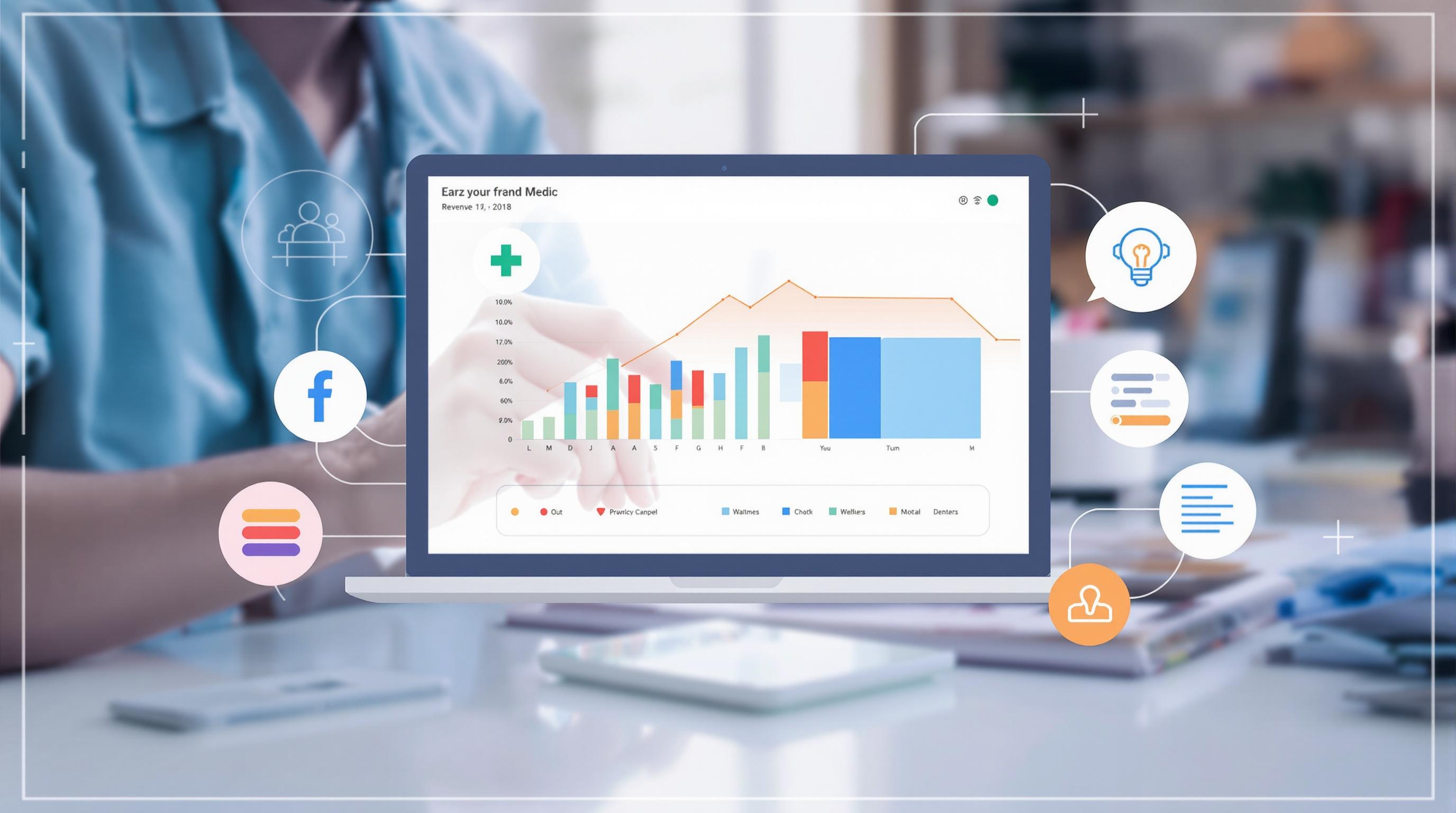Related Articles
- The Unexpected Impact of Environmental Factors on the Accuracy of Medication Dispensing Technologies
- Exploring the Influence of Mental Health Stigma on Accessibility and Affordability of Coverage in Modern Insurance Plans
- How Cloud Storage Quirks Are Quietly Complicating Patient Data Protection in Modern Healthcare Settings
- Top 6 Emerging Medical Billing Platforms Revolutionizing Practice Revenue Cycles Since 2019
- When Digital Distance Deepens Divide: Surprising Social Costs of Remote Health Services in Underserved Communities
- The Unexpected Role of EHR Usability in Physician Burnout and Strategies to Reclaim Workflow Balance
Exploring the Role of Medical Billing Systems in Shaping Healthcare Data Privacy Practices Beyond Compliance
Exploring the Role of Medical Billing Systems in Shaping Healthcare Data Privacy Practices Beyond Compliance
Medical billing systems have evolved far beyond mere transaction tools, driving healthcare providers to rethink data privacy practices in a rapidly digitalizing environment. This article explores how these systems contribute not just to compliance, but to a culture of confidentiality, security, and patient empowerment.
Why Medical Billing Systems Matter for Data Privacy
Imagine a busy hospital where thousands of patient records are processed every day—each containing deeply personal information. Medical billing systems are the gatekeepers of this data flow, and their design levels directly influence privacy protection measures. With cyberattacks rising by 45% in healthcare over the past five years (HIPAA Journal, 2023), how these systems handle sensitive information can make or break institutional trust.
A Young Writer’s Perspective: Data Privacy as Empowerment
Hello! I’m 23, and passionate about technology and healthcare. To me, protecting patient data isn’t just about avoiding penalties; it’s about respecting people’s dignity. Medical billing software, when developed thoughtfully, can give patients more control over their medical histories, billing details, and who gets to see them. That’s powerful empowerment, and we need more companies thinking this way.
Compliance is Just the Tip of the Iceberg
Under regulations like HIPAA in the U.S. and GDPR in Europe, healthcare organizations are required to maintain strict controls on patient data. However, medical billing systems, by integrating privacy-by-design principles, can achieve a higher standard. They implement end-to-end encryption, role-based access controls, and audit trails that monitor data access beyond the basic requirements. These proactive features create a dynamic privacy environment rather than a static checklist.
The Human Cost of Inadequate Systems
Take the 2019 data breach at a large U.S. medical provider that exposed billing and medical records of 3 million patients. The breach caused not only financial losses but emotional distress among patients fearing identity theft and discrimination. This incident exemplifies why medical billing systems must be fortified with privacy safeguards working beyond regulatory demands.
A Lighthearted Analogy to Remember
Think of medical billing systems like an overly chatty librarian trying to spill secrets; unless well-trained in discretion, everyone in the library knows your business! Designing these systems to “shush” unnecessary data exposure prevents gossip (data leaks) and keeps patient information confidential.
Case Study: How System Integration Affects Privacy
At St. Mary’s Hospital, integrating their billing system with electronic health records (EHR) allowed for seamless data exchange but introduced complex privacy challenges. The IT security team devised custom access protocols ensuring only billing clerks could view billing data, while medical staff accessed clinical information. This model minimized exposure and set a benchmark for data segregation, contributing to a 30% reduction in unauthorized access incidents.
The Role of AI and Automation
Artificial intelligence, increasingly embedded in billing systems, can detect anomalies suggesting fraud or unauthorized access. For example, an AI tool might flag unusual billing activities or bulk data downloads, alerting administrators in real time. However, AI also raises concerns about data privacy, necessitating transparent algorithms and ethical handling to avoid unintended information leaks.
Privacy as a Cultural Shift in Healthcare
Beyond technology and processes, medical billing systems are catalysts for cultural transformation. When staff trust that billing protocols protect patient data, they engage more confidently with digital tools. Continuous training and clear communication about privacy policies reinforce this culture, reducing human errors that cause data breaches more than technical faults.
The Future: Patient-Centric Privacy Designs
Looking ahead, next-generation medical billing platforms aim to give patients more choices about their data sharing preferences. Concepts like consent dashboards enable patients to approve or revoke permissions for different uses, fostering transparency and trust.
Statistics Bolster the Case
According to a 2022 report by Health IT Analytics, 68% of patients expressed preference for billing systems that offer clear insights into data usage and sharing. This illustrates an opportunity for healthcare providers to leverage billing technology not only for efficiency but also for enhancing patient relationships.
Financial Incentives for Enhanced Privacy
Healthcare organizations investing in robust medical billing systems often see tangible financial benefits. Reduced risk of costly data breaches means fewer fines and lawsuits, while improved patient trust boosts retention and satisfaction scores. In a competitive market, privacy excellence thus becomes a significant differentiator.
A Note on Challenges and Risks
No system is invulnerable. Integration complexities, user errors, and outdated infrastructure can undermine privacy efforts despite strong system features. Continuous audits, updates, and stakeholder involvement are essential to address evolving threats and ensure sustained compliance and protection.
Conclusion: Beyond Boxes on a Form
Medical billing systems are far from mere clerical tools; they are foundational to holistic data privacy practices in healthcare. Moving beyond regulatory checklists, they embed trust, transparency, and control into the patient experience. For healthcare stakeholders, embracing this expanded role means not only protecting data but uplifting the very ethics of care.




